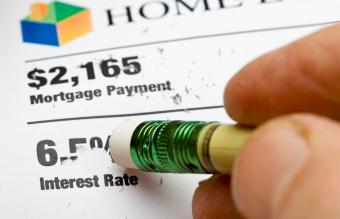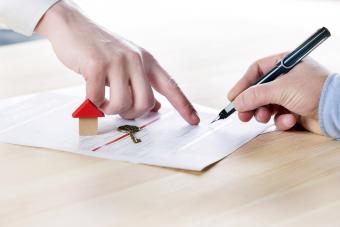
A lot of people ask, how does escrow work, especially if they're looking to buy their first home. Escrow usually comes into play during the mortgage settlement process as well as throughout the life of the loan to pay taxes, insurance, and other recurring fees.
So How Does Escrow Work?
Escrow is essentially an agreement to put money in an account that will be deducted from later in order to settle expenses, which are specified in writing. Usually, a mortgage lender will request that the new homebuyer put two months of property tax payments and two months of homeowners insurance payment in escrow before closing on the home loan. This money will be part of what is known as closing costs.
Having this money in escrow protects the lender, since it knows that the buyer will pay these quarterly charges on time. Failure to pay could put the home in jeopardy. It also protects the buyer from being dinged for late payments.
Escrow Funds
Money in escrow doesn't stay with the buyer, and it doesn't always go directly to the mortgage lender. Instead, it can go to a third party company, known as an escrow agent. Since the money is no longer technically in his or her account, the buyer cannot earn interest on these funds. When the bills come due, the escrow agent dispenses the money needed to make the payments. In cases where the money goes directly to the mortgage lender, it can earn interest on the money - and the lender may or may not pass on this interest to the buyer.
Escrow Payments Over the Life of the Mortgage
The homeowner doesn't only pay into escrow at closing but continues to pay into escrow each month as part of the monthly mortgage payment. The escrow holder can then continue to make payments for taxes and insurance over the life of the mortgage loan. The buyer will always have a cushion of one to two months, as long as he or she stays current on the mortgage payments.
When the buyer decides to sell the home, the new buyer can reimburse him for any money that remains in escrow. If the homeowner decides to change a homeowners insurance policy, the buyer should notify the escrow holder as far in advance as possible so that it can adjust the payment amounts and make sure the money ends up in the right place. At least 30 days ahead of time is customary.
Overages and Shortages
The holder of the escrow account adjusts the amount the buyer needs to keep in escrow based on changes in the assessed value of the property, policy changes and other factors that can make the person owe more or less. In the event of a shortage, the shortage amount is divided by 12 and then this amount is added to each monthly mortgage payment. This helps the mortgage holder because the shortage does not have to be paid in one lump sum, although this option is available.
In the event of an overpayment, the overage amount can be divided by 12 and result in reduced mortgage payments for the next year. However, if the overage is substantial, the escrow holder may instead choose to issue a refund check.
Other Uses for Escrow
Escrow can be used for pretty much any business arrangement where a person has to surrender funds in advance for future use. It is a good system for paying online contractors, especially ones you haven't worked with before. This provides a level of trust that encourages the individual to perform the work up to expectations. Some buyers and sellers on eBay also use escrow services for a similar reason.







